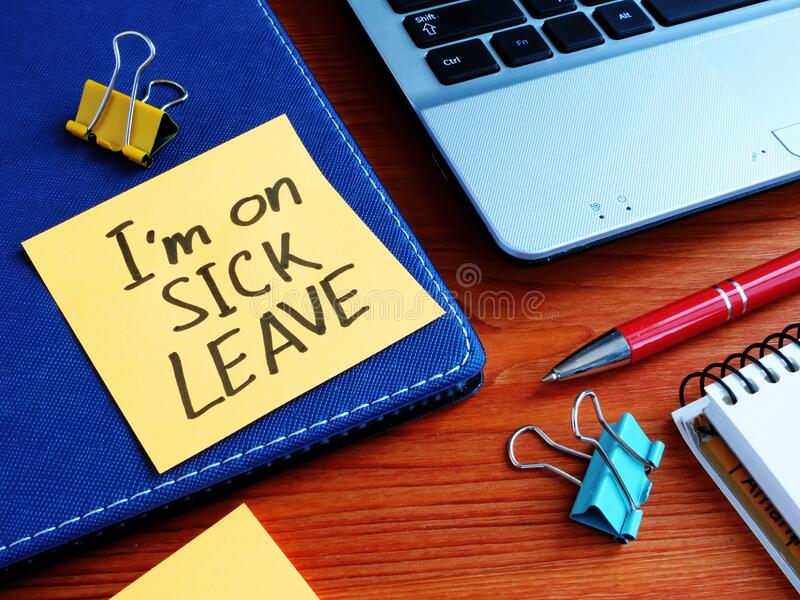Understanding Sick Leave?
Sick leave is a crucial aspect of employment that allows employees to take time off work due to illness or injury. This leave is designed to support workers when they most need it, ensuring they have the opportunity to rest and recover without the added stress of job insecurity. In many workplaces, a sick certificate is required as legal evidence for taking sick leave, and these certificates are typically issued by healthcare professionals such as doctors, nurses, or pharmacists.
Understanding Sick Certificates
A sick certificate serves as proof that an employee was unwell and unable to work. It usually contains the healthcare provider’s details, the recommended duration of absence, and the date of examination. This documentation ensures transparency in the sick leave process and helps employers manage their workforce effectively.
Sick Leave Under National Employment Standards
Sick leave entitlements are governed by the National Employment Standards (NES), which set forth minimum entitlements for all workers in Australia under the Fair Work system. Established under the Fair Work Act 2009, these standards outline various types of leave, including sick leave, annual leave, and parental leave..
How to Apply for a Sick Leave Certificate
To take sick leave, it’s essential for employees to understand the process of obtaining a sick certificate. According to the Fair Work Ombudsman, employers can require evidence showing that the leave was due to illness or injury. As many workplaces accept online sick leave certificates from healthcare providers, this option often provides a convenient solution for employees needing to take leave.
The Importance of HR Policies
The HR policies regarding sick leave can vary from one workplace to another. Some companies may have specific guidelines for requesting and approving sick leave certificates. However, a standard framework exists that employees can rely on, which allows for a smoother sick leave process. Employers are entitled to request medical documentation even for short absences, ensuring a consistent approach to sick leave across their workforce.
Sick Leave Accumulation
Unused sick leave can carry over from one year to the next. Full-time employees under the NES typically accrue ten days of paid sick leave annually; part-time employees receive this on a pro-rata basis. Understanding the accrual policy is crucial for managing health-related absences effectively.
Do Unused Sick Leave Days Expire?
Fortunately, unused sick leave does not expire after one year. Instead, it accumulates from the first day of employment and is based on regular working hours. Sick leave continues to accrue during various paid leaves, including annual and community service leave. However, it does not accumulate during periods of unpaid leave.
Payment for Sick Leave
Sick leave is compensated at each employee’s base pay rate during their leave period. This compensation covers regular working hours but excludes overtime and other incentives. It’s essential to be aware of how sick leave is calculated to avoid any confusion regarding payment during periods of absence.
Long Periods of Sick Leave
There may be instances when employees need to take extended sick leave. In such cases, employees who provide sufficient evidence of their condition have protection from dismissal provided they meet specific criteria. This includes having been away for less than three consecutive months or less than three months over a twelve-month period while still utilizing their paid sick leave.
The Benefits of Using Paid Sick Leave
It might be tempting to push through illness and not take sick leave; however, understanding the value of utilizing this benefit is essential. Employers expect employees to use sick leave to maintain their health, and doing so can yield significant advantages for both the employee and the workplace. Taking sick leave can lead to better recovery, enhanced productivity upon returning, and a healthier workplace overall.
Sick Leave FAQs
In this section, we aim to address some common questions about sick leave:
- What type of evidence is required for sick leave?
Typically, a medical certificate or a sick certificate from a healthcare provider.
- Can sick leave be used for medical appointments or elective surgeries?
This largely depends on employer policies, so check the guidelines before requesting leave.
- When should employees notify their employer about taking sick leave?
As soon as possible, ideally when the employee is aware they will be unable to work.
- What is the legality of taking sick leave from a telehealth physician?
Sick certificates from telehealth providers are often accepted, but it’s advisable to confirm with your employer.
Conclusion
In summary, sick leave plays a vital role in promoting employee health and well-being. By understanding the processes, entitlements, and importance of sick leave, employees can make informed choices that not only benefit their health but also contribute to a smoother operation within their workplace. Whether it’s needing a sick certificate or understanding accumulation and payment policies, the key is to utilise your sick leave when necessary to maintain a healthy work-life balance. For further details on obtaining a sick certificate, please refer to OnCare Health.






